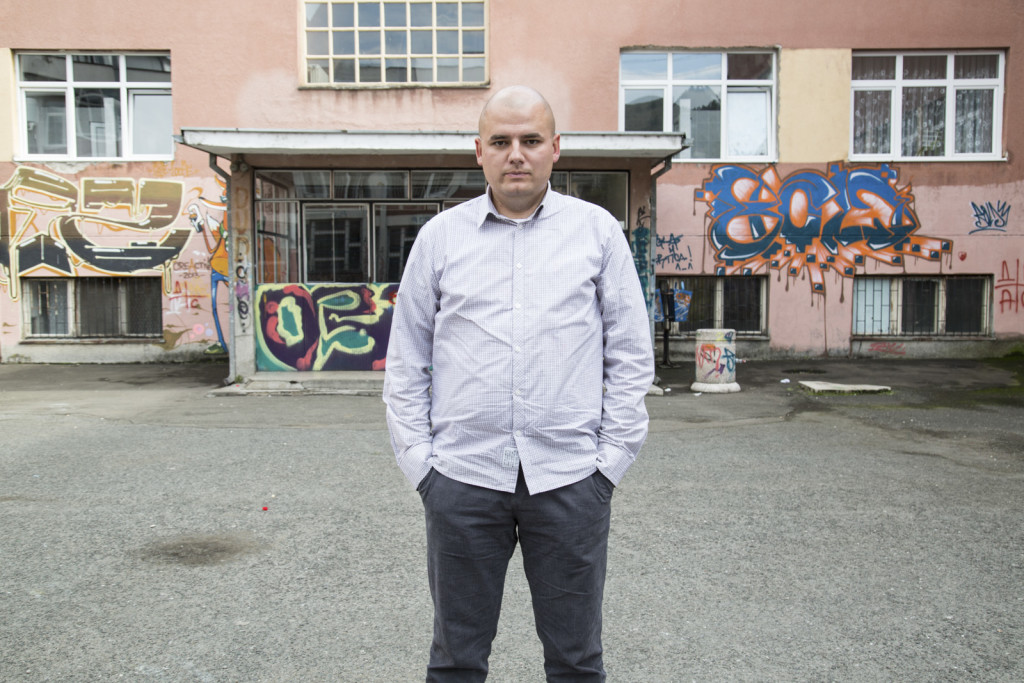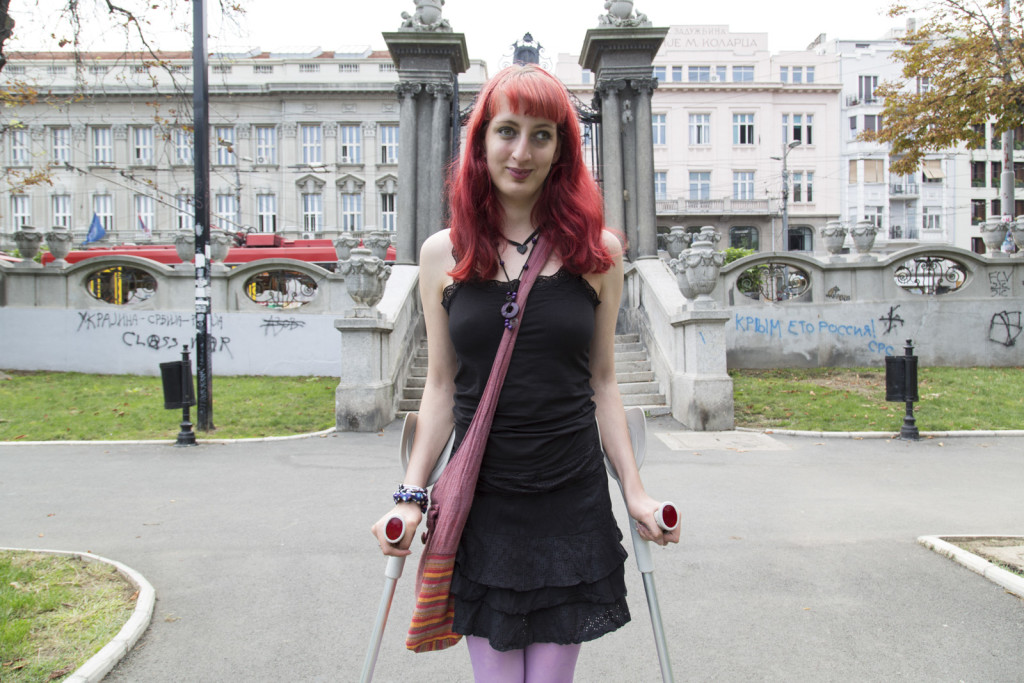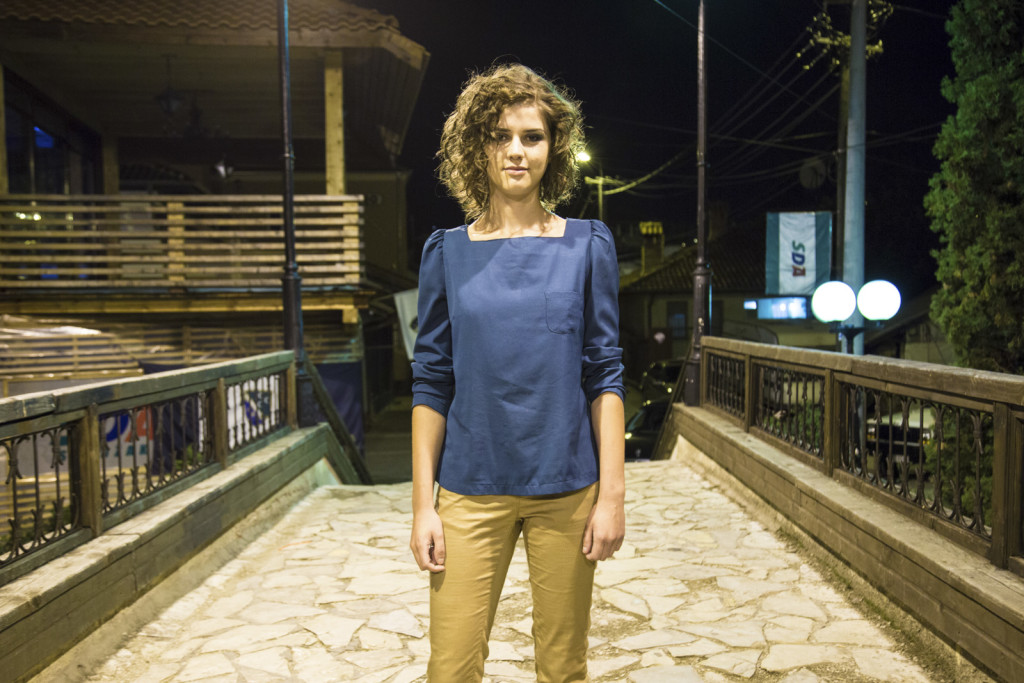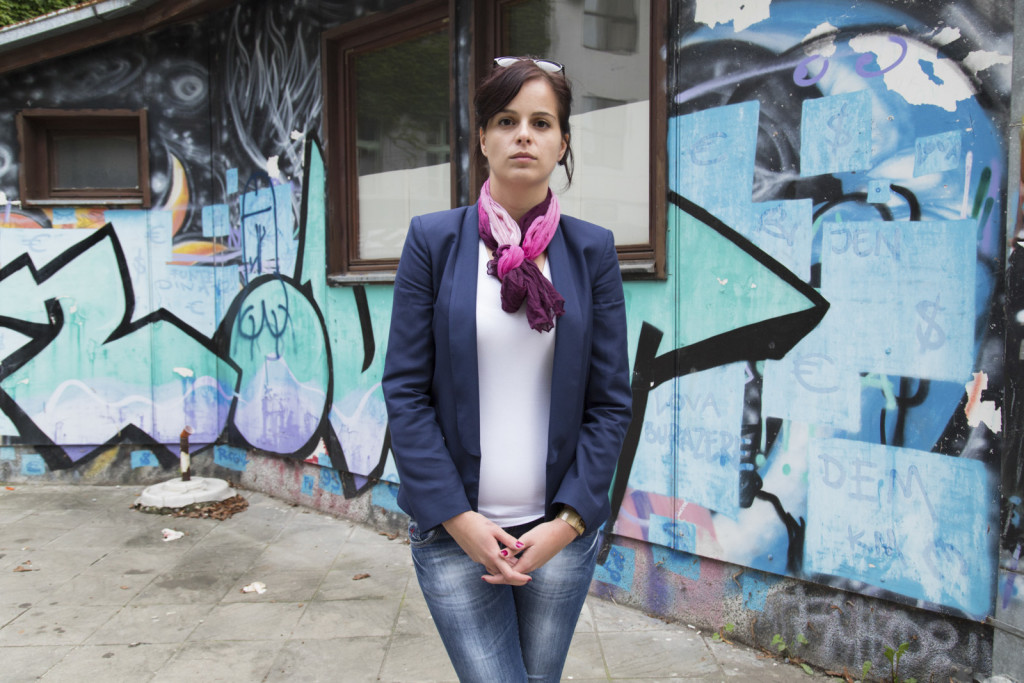Serbia’s bid to join the ranks of the European Union has led young Serbians to question whether their country could live up to EU regulations and political commitments. Some even question whether or not membership would bring the long awaited benefits they hoped for.
Serbia went through sweeping changes in the last fifteen years. The country’s borders were altered many times, and even if the nation closed the chapter on the Balkan wars of the 1990s, the effects of the past still echo in contemporary Serbian society.
Rejhana, 21, is a third-year art student at the State University in the southwestern city of Novi Pazar. She was a successful tennis player, but an injury stopped her career.
“I quite hope I will go somewhere else to live,” she says. “I would like to attend postgraduate studies somewhere in Europe and try to stay there. I think there’s not much perspective for people who are keen on art in our country, especially our city.”
Rather than staying in her native Serbia, Rejhana would like to devote herself to traveling and “meeting the world and its gifts.”
“I can see myself as a painter in the future, for example in five years, not in Serbia but in some European country, having individual exhibitions and a permanent job,” she said.
The biggest and most populous country in the western Balkans seems to be the furthest one from Europe. Serbia began its membership talks with the European Union last January. The arrest and extradition of the last of the country’s indicted war criminals and talks with Kosovo to normalise relations were the two key points demanded by Brussels as conditions to EU membership.
“Even though I think we are quite far from EU in terms of our mentality, our attitudes,” Rejhana said, “we [the youth] hope this will change in the future with entrance into the EU.”
Serbia’s situation is fragile. The unemployment rate is above 20 percent, and a lack of foreign investments has slowed down economic growth in the country. Furthermore, Cyclone Tamara, the worst of its kind in 120 years of recorded weather measurements, hit the region around Belgrade in last June.
Marko, 26, is the local youth representative of the Democratic Party of Serbia in Raska, a small town in south-central Serbia. Although he studies in the Faculty of Security in Belgrade, he spends a lot of time in his hometown and expressed concern for the situation of the youth there.
“There are a lot of problems getting a job in my hometown,” he said. “Over 50 percent of the youth is unemployed here. Politicians easily employ people they want, no matter if they are qualified for the job or not, and we often see situations where unqualified people work in places are normally reserved for those who graduated and are experts, but do not have political connections.”
Marko looks forward to better times if Serbia gets closer to the EU, attracting more investments and improving the country’s economy. “I worked on projects which were funded by the EU, and because of this experience, I can certify that the means of the EU would contribute to the faster development of our country and employment of the youth.”
However, Marko is also worried that being part of the EU could lead many young qualified people to leave Serbia, as “opportunities will undoubtedly become much easier than before.”
“The bad side to entrance [into the EU] is that if highly educated people leave the country, then unqualified people will remain and be left only to perform unskilled labor,” he said.
Others remain skeptical about the European Union, considering the less-than-stellar performances neighboring countries that passed through the integration process, like Romania and Croatia; and the 1999 NATO bombings in Belgrade that indelibly marked many Serbs.
Marija, 23, has just finished her BA in German language and now is attending an MA program in Kragujevac.
“I have to say that EU is not held by the whole European members, but only by some countries within it,” she said. “It is not known that the EU commands the living conditions of other countries. Small countries like Serbia were just dropped into a system of aristocratic rule. Countries like Germany or the UK actually command the economic flow and get the credit.”
Serbia has its own fight against the corruption in the political system that has contaminated the economic sector. Membership of a political party seems to be a prerogative if someone wants to get a job, and the salaries are too low to ensure proper living conditions.
Milanka, also 23, comes from Blace, a town in southeast Serbia. She studies Literature and Literary Theory in Belgrade.
“Unemployment is a huge problem,” she said. “People work for very little money. I did not have any perspective there (Blace), and I moved to Belgrade just because I was convinced I would have more opportunities here. The university is better. I could make some contacts with people who could help me to go abroad. I had a dream to leave Serbia; because, being a disabled person, I am aware that my chances for having a normal life in Serbia are small.”
The young Serbian says that many employers don’t employ a person with disabilities. “Some employers were very kind with me, and they told me they would call me, but they did not,” she adds.
“Political factors will decide if Serbia will enter the EU ,and I do not have a defined attitude towards the EU,” Milanka said. “Neither do many people. Even if we entered the EU, we would hardly get used to the tasks which they would require from us. Standards are quite different, and it would take years for Serbia to adopt their way of thinking and acting. We are simply not at the same level. Our nation is really specific. We are quite stubborn, odd and focused on personal ideas more than on work. Garrulity is one of our defining personal characteristics.”
Many young people are conscious of the lack of prospects awaiting them once they finish their studies. Some look for better perspectives abroad, with Germany and Northern Europe among their preferred destinations. But the same youths, mistrustful and critical of the Serbian system, may be the generation that will lead Serbia out of its past.
All right reserved ©Mattia Marinolli



